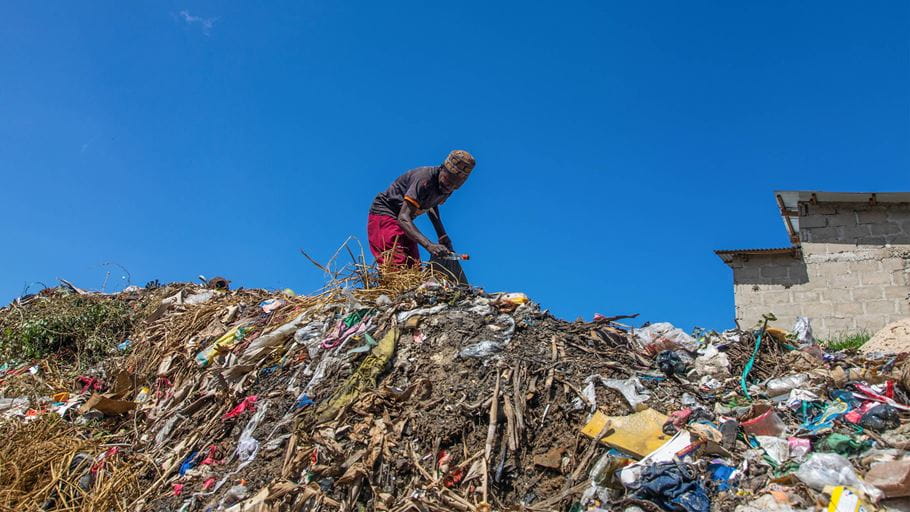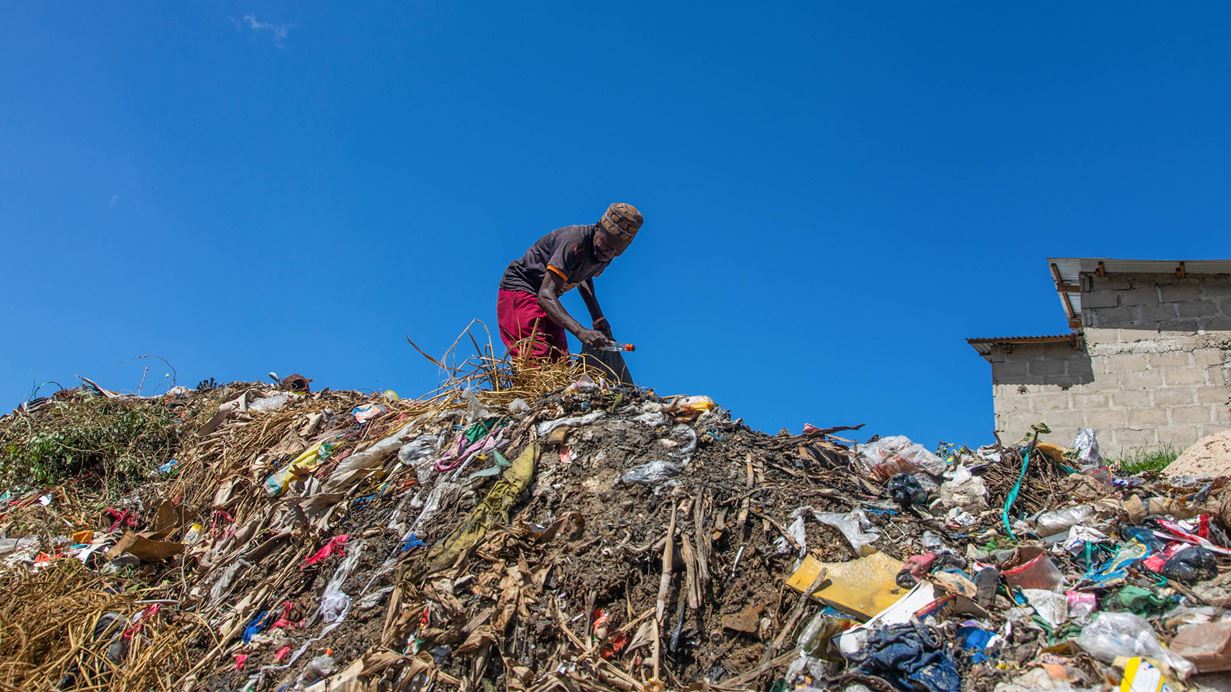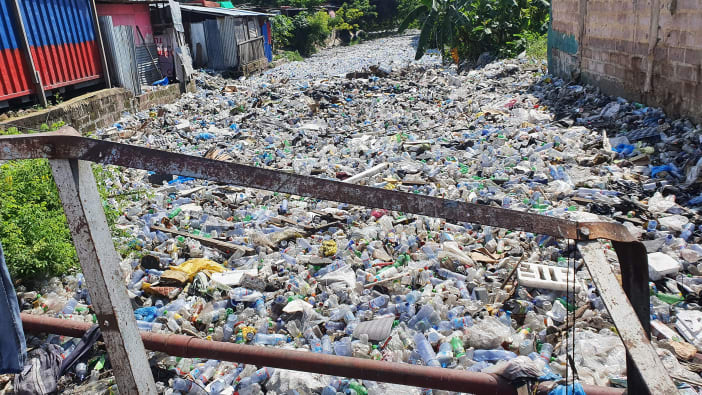In just a few days’ time, the curtain will rise on the second round of negotiations on a global plastic treaty (INC-2 for short). Over the course of five days (29 May to 2 June), 1,500 people will crowd into a conference centre in Paris to discuss what this treaty should look like, and Tearfund staff and activists will be among them.
It was a little over a year ago that world leaders finally agreed something needs to be done about plastic pollution at a global level. That’s why these negotiations have been set up, so that governments can come together and draw up a global agreement (known as a treaty) which sets out how the problem will be solved. By the end of the process in 2024, they will have met five times. Tearfund has been involved since the beginning, pushing for a treaty which recognises and addresses the impacts of plastic pollution on people as well as the environment. And we’ve already seen great success. At the first round of negotiations at the end of 2022 (INC-1), we were able to talk to lots of governments about how plastic pollution affects people as well as the environment and how the treaty can make a difference for people living in poverty. Much to our delight, we have seen this reflected in many countries’ official positions ahead of INC-2.
But now things are starting to get serious. In Paris, negotiators will discuss a long list of suggestions for how the treaty might deal with plastic pollution. There’s a lot of positive options in there, including ones that reflect our conversations with governments at INC-1. But there are lots of options and not everyone will like all of them. The challenge now is to make sure these things stay on the list as negotiators begin to shape the treaty.
Who is at the negotiations is important. Among the 1,500 people in the room (and many more outside it) will be an alarming number of people from fossil fuel and petrochemical companies who are there to protect their profits. It’s feared they may try to hold up the negotiations and oppose attempts to reduce plastic production and use, offering instead false solutions which will allow them to keep making more and more plastic. They have a lot of money and a lot of influence, including over certain governments, which is extremely concerning.
That’s why it’s so important that organisations such as Tearfund are there too, speaking out with and on behalf of those whose voices otherwise might not be heard. These are people on the frontlines of the plastics crisis: communities whose health and livelihoods are being damaged by plastic pollution, and the 20 million people who work as waste pickers. Our Tearfund delegation will include campaigners from Malawi and Zambia and we will also be working closely with the group of waste pickers.
Waste pickers are the hidden heroes of the recycling industry. Globally, they collect approximately 60 per cent of all the plastic that gets recycled. But they are often working in dangerous conditions, for little pay or recognition. This is something we hope the treaty will help change and that’s why it is vital that they are at the negotiations.













